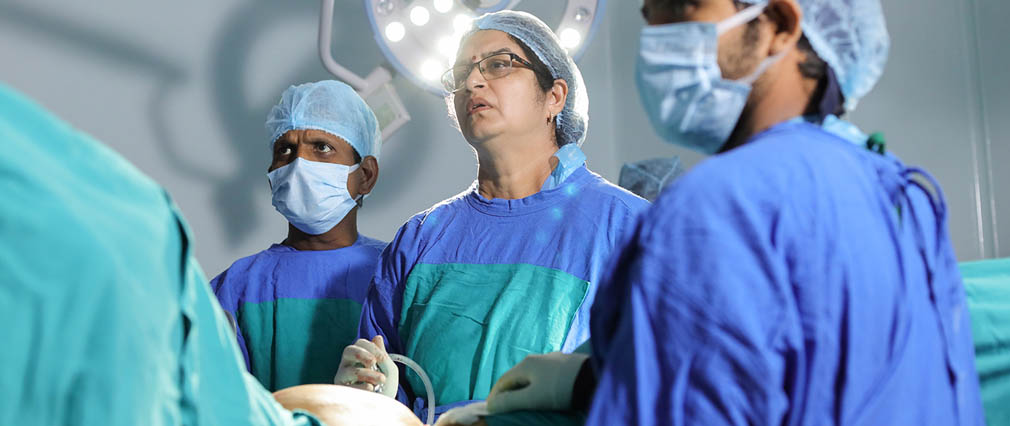
Laparoscopic Scar Pregnancy Surgery: Expert Management at Meerut Gynaecologist
What Is Laparoscopic Scar Pregnancy Surgery?
A scar pregnancy is a rare type of ectopic pregnancy where the fertilized egg implants in the scar tissue of a previous cesarean section. This condition poses significant risks, including uterine rupture, severe bleeding, and complications for future pregnancies. Laparoscopic scar pregnancy surgery is a minimally invasive procedure to remove the abnormal pregnancy while preserving the uterus. This advanced technique ensures precise treatment with reduced surgical trauma and faster recovery.
How Is Laparoscopic Scar Pregnancy Surgery Performed?
The procedure is performed under general anesthesia. Small incisions are made in the abdomen to insert a laparoscope and surgical instruments. The surgeon carefully removes the scar pregnancy tissue, repairs the uterine scar, and addresses any complications. In cases of severe damage, additional steps may be needed to ensure uterine integrity. The minimally invasive nature of the surgery ensures better outcomes and quicker recovery.
Who Needs Laparoscopic Scar Pregnancy Surgery?
This surgery is recommended for:
- Women diagnosed with a cesarean scar pregnancy through ultrasound or MRI.
- Cases where medical management with methotrexate is not viable or has failed.
- Patients experiencing complications such as bleeding or pain associated with the scar pregnancy.
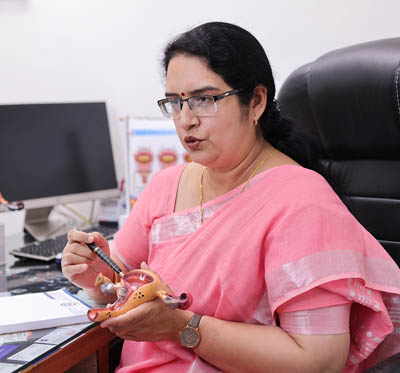
Pre-Op and Post-Op Requirements
Pre-Op Preparation:
- Detailed imaging, such as transvaginal ultrasound or MRI, to confirm the diagnosis and plan the surgery.
- Blood tests to assess overall health and prepare for surgery.
- Fasting for 6–8 hours before the procedure.
Post-Op Care:
- Pain management with prescribed medications.
- Avoiding strenuous activities and heavy lifting for 4–6 weeks.
- Regular follow-up visits to monitor uterine healing and discuss future pregnancy planning.
Dr. Deepti Dogra’s Expertise in Laparoscopic Scar Pregnancy Surgery
Dr. Deepti Dogra has extensive experience in managing complex cases of cesarean scar pregnancies. Her precision in laparoscopic surgery ensures effective removal of the scar pregnancy with minimal disruption to the uterus, preserving reproductive health. At Meerut Gynaecologist, every patient receives personalized care and support to navigate this challenging condition safely.
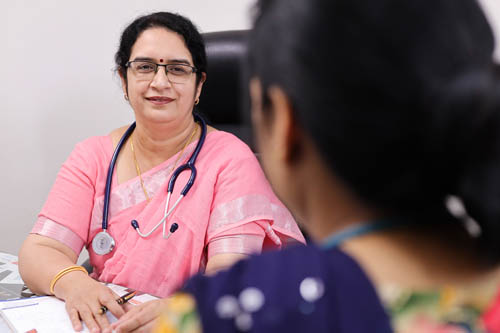
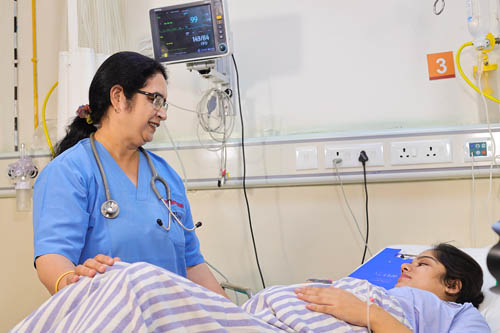
Your Reproductive Health Matters!
If you’ve been diagnosed with a cesarean scar pregnancy, trust Dr. Deepti Dogra at Meerut Gynaecologist for expert care and advanced surgical solutions. Book your consultation today and ensure your health and well-being with the best care available!
FAQs for Laparoscopic scar pregnancy surgery at Meerut Gynaecologist
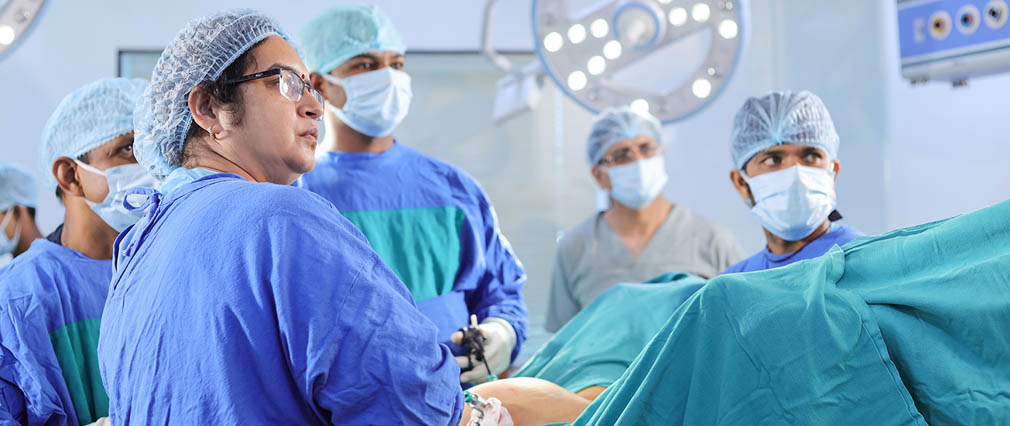
Non-Descent Vaginal Hysterectomy (NDVH): Advanced Gynecological Care at Meerut Gynaecologist
What Is Non-Descent Vaginal Hysterectomy (NDVH)?
Non-Descent Vaginal Hysterectomy (NDVH) is a minimally invasive surgical procedure to remove the uterus through the vaginal route, without the need for abdominal incisions. Unlike traditional hysterectomies, NDVH does not require the uterus to descend into the vaginal canal naturally. This procedure is ideal for treating conditions such as fibroids, abnormal uterine bleeding, and uterine prolapse, offering the benefits of reduced post-operative pain, quicker recovery, and no visible scars.
How Is NDVH Performed?
The procedure is performed under regional or general anesthesia. Using specialized instruments, the uterus is detached from its supporting structures and removed through the vaginal canal. Advanced techniques ensure minimal trauma to surrounding tissues, and the surgery typically takes 1–2 hours. NDVH is particularly suitable for women with a normal-sized uterus and no significant pelvic adhesions.
Who Needs Non-Descent Vaginal Hysterectomy?
This procedure is recommended for:
- Women with abnormal uterine bleeding unresponsive to medical treatment.
- Uterine fibroids or adenomyosis causing pain and discomfort.
- Early-stage gynecological cancers where vaginal surgery is appropriate.
- Uterine prolapse or other pelvic floor issues.
- Patients seeking a minimally invasive alternative to abdominal hysterectomy.
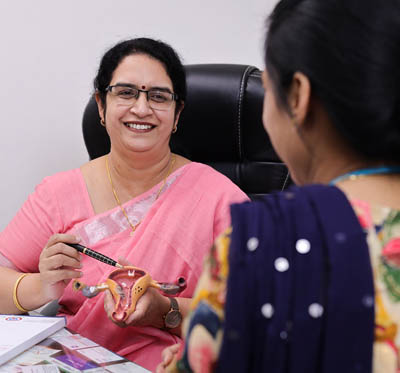
Pre-Op and Post-Op Requirements
Pre-Op Preparation:
- Comprehensive evaluation, including imaging tests like ultrasound or MRI, to assess uterine size and pelvic anatomy.
- Blood tests and routine health checks to ensure readiness for surgery.
- Fasting for 6–8 hours prior to the procedure.
Post-Op Care:
- Mild vaginal discomfort or spotting is common and managed with medications.
- Avoiding heavy lifting, strenuous activities, and sexual intercourse for 4–6 weeks.
- Gradual return to normal activities under medical guidance.
- Follow-up visits to monitor healing and discuss long-term care.
Dr. Deepti Dogra’s Expertise in NDVH
Dr. Deepti Dogra is a leading expert in performing Non-Descent Vaginal Hysterectomy with precision and care. Her extensive experience ensures minimal complications and optimal outcomes for patients. At Meerut Gynaecologist, advanced techniques and a patient-centered approach combine to provide a seamless surgical experience and faster recovery.
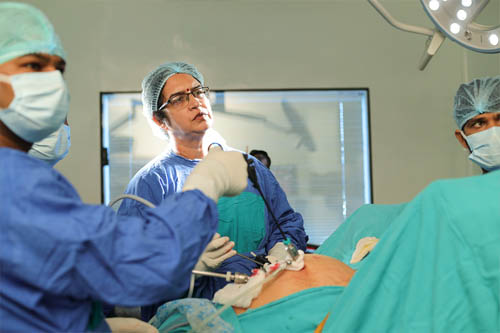
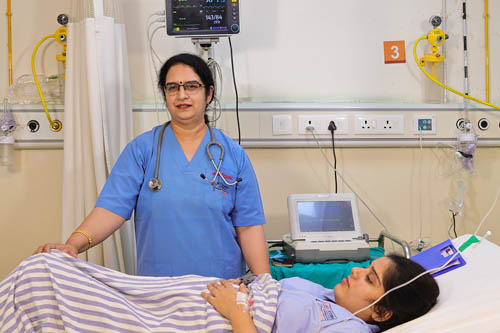
Choose a Safer, Scar-Free Option!
If you’ve been advised to undergo a hysterectomy, consult Dr. Deepti Dogra at Meerut Gynaecologist to explore NDVH as a minimally invasive solution. Book your consultation today and take the first step toward improved health and a quicker recovery!


